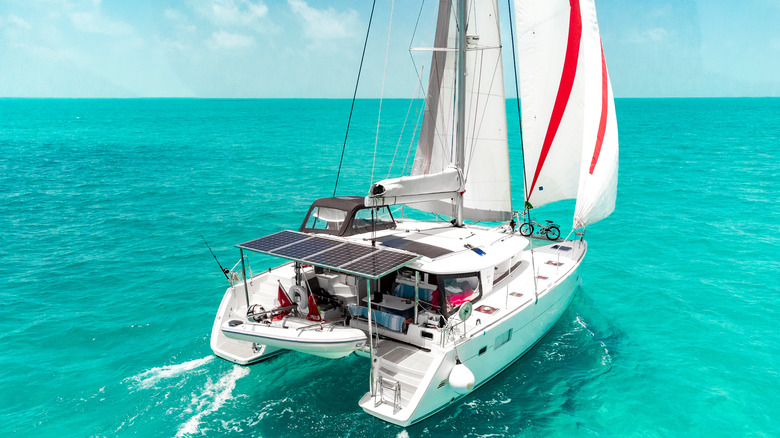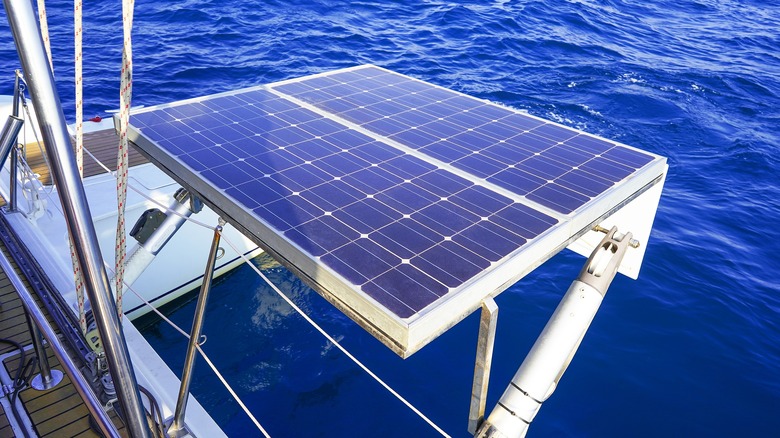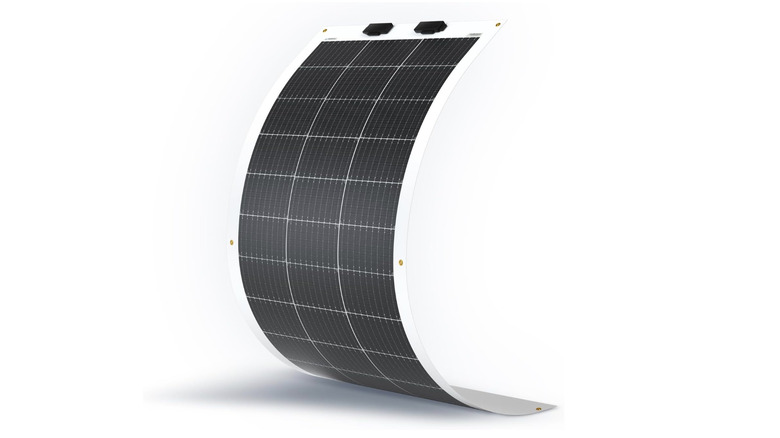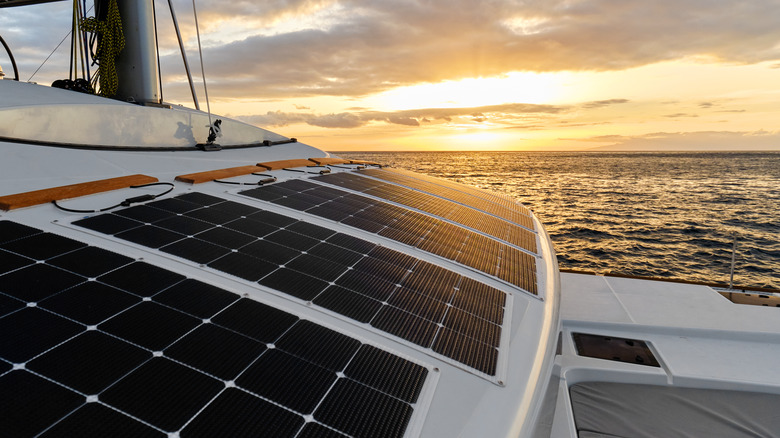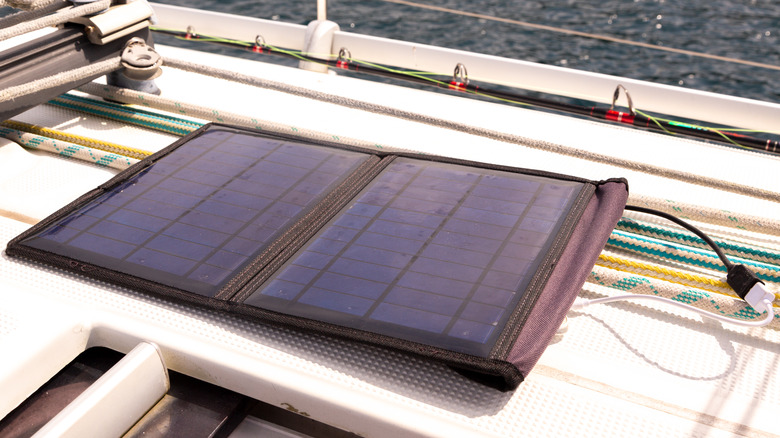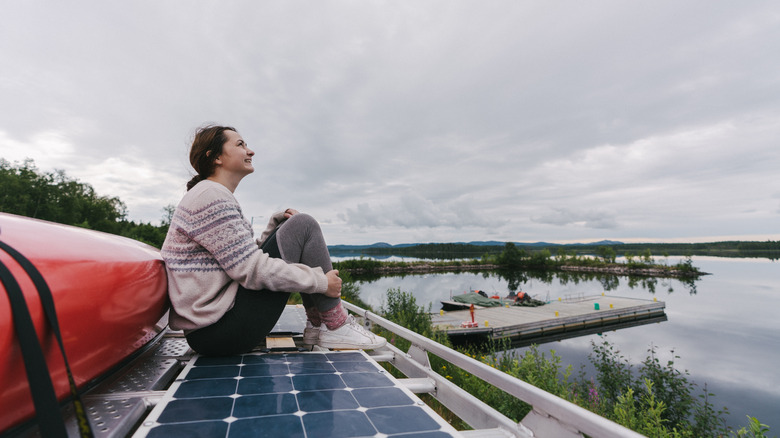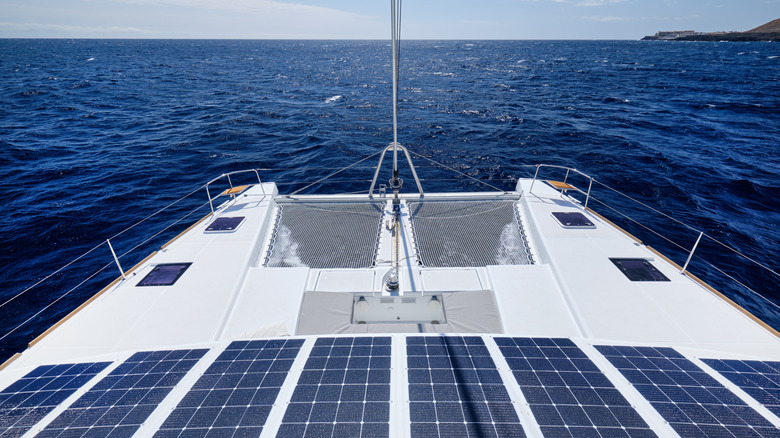What Types Of Solar Panels Are Best When Creating A Charging System For Your Boat?
Solar systems can be a great way to harness the sun's energy to create electricity that you're able to use when sailing on your boat, whether that's to power all the appliances onboard or to keep the boat's battery charged so you're able to get to the shore safely. In the absence of a solar system, you'd have to rely on shore power or a noisy generator that increases your carbon footprint. But the good news is that thanks to how solar energy has evolved over the years, there are now multiple types of marine-grade solar panels that are available for boats of all sizes.
These solar panels work similarly to those used in residential settings; however, they're marine-grade, which means they're built to withstand the harsher climate of the open waters. If you're considering installing solar panels on your boat, here's a look at the types of solar systems available on the market. This article also covers the pros and cons of installing these solar panels.
Rigid solar panels
Rigid solar panels, as the name suggests, act as a permanent energy source for a boat. They're usually more durable and efficient than other types of solar panels; however, the installation is more complex and is best left to professionals. They're also fairly heavy — a standard 100W panel can weigh about 20 pounds, making it harder to uninstall and transport as you see fit.
Rigid panels are usually made of two materials — monocrystalline and polycrystalline silicon. Monocrystalline panels are made from the highest grade of silicon, which results in higher efficiency, more durability, and a sleek design that requires less space. Although these panels have a favorable size-to-power ratio, keep in mind that they're often more expensive than other types of solar panels. That said, though, given the quality and how long these panels tend to last, they're a solid choice if you intend to own your boat for an extended period of time.
Polycrystalline solar panels, on the other hand, are made from fragments of silicon. Because they have multiple crystal structures, as opposed to monocrystalline panels that have a single crystal structure, they're more bulky and less efficient. The benefit, however, is that they're more economical. If space is not a constraint and you're on a budget, polycrystalline panels might be the way to go.
Flexible solar panels
Flexible solar panels — usually made with thin-film photovoltaic cells — are an alternative to traditional rigid panels. They're lightweight and flexible, which allows them to bend for installation on curved surfaces, and inexpensive when compared to rigid solar systems. Another big positive is that although they're pretty flexible, they're usually durable and can hold up well against adverse weather conditions. The downside, however, is that they're less efficient than rigid solar panels, which means you'll need to install more of these panels to meet your energy needs on the boat. Another thing you'll want to consider is that flexible solar panels usually have a more limited warranty than rigid panels.
While it's not uncommon for these panels to last a number of years, the warranty itself might last only up to five years. Any repairs after the warranty period has come to a close will, thus, have to be covered by you out of pocket. Despite these drawbacks, they're popular for boats, given that they can be installed on most surfaces, even if they're low-load-bearing, and are easy to uninstall. They're also a good choice if your boat already has a solar system but you want to supplement the power generation in an affordable way.
Semi-flexible solar panels
Semi-flexible solar panels offer many of the advantages of rigid solar panels, with the flexibility and lightweight construction of flexible panels. These panels are usually made of polymer or flexible plastic material that contains a thin layer of solar cells — usually monocrystalline cells. Because the body of the panels is flexible, they can be installed on curved surfaces like flexible panels, making them well-suited to being installed on boats. Also, because they're fairly lightweight, you can do without bolts when installing them and, instead, use a quality adhesive to hold them in place. They're also more aesthetically pleasing than rigid solar panels that have to be installed flat on surfaces.
Keep in mind, though, that they're not as efficient as rigid solar panels; yet, their thin and moldable construction makes them a viable option when rigid panels are not feasible. This makes them a popular option among boat owners, especially those who were looking to install traditional panels but were unable to.
Portable solar panels
If space is limited and you want to avoid having to install and possibly uninstall the solar panels in the future, portable panels are an option worth considering. They're pretty affordable and versatile, given that you can use them to power your boat but also, say, take them to a campsite to power your appliances there. Also, because they're not fixed to a surface, you can manually move the panels around to face the sunlight so they capture maximum energy.
While this type of solar panel has its benefits, there are also a few pertinent downsides to consider. For one, while many portable solar panels are foldable, you're likely going to need more than a few to power up your boat, which increases your cost and reduces the convenience factor slightly. What's more, keeping them free of damage during transport can be challenging. If you decide to purchase portable solar panels for your boat, keep in mind that not all have the same quality or waterproof rating. Make sure you're picking ones that have an IP68 rating to avoid damage due to water splashes.
How many solar panels will you need?
The size of the solar system you install will depend primarily on your location and energy consumption. To determine how many solar panels you will need, take a few minutes to calculate your power consumption. Be sure to account for all your appliances and energy needs to arrive at an accurate estimate. You can then determine how much solar power and how many solar panels you'll need.
When shopping for solar panels, you're likely to come across the wattage of the panel in the title or as a key specification. This is the amount of power the panel can generate. If you purchase a 200-watt solar panel and are sailing at a location where you're likely to get five hours of sunlight, your panels should, in ideal conditions, provide you with 1,000-watt hours of power. That said, remember that solar panels don't usually operate at their peak efficiency, given that factors like panel orientation, weather conditions, and dust can affect their functioning.
So, if you need 1,000-watt hours of power, it's best to opt for a 300-watt or 500-watt solar panel that is capable of generating more power than you need. Excess energy can be stored in a battery for you to use during the night or on rainy/cloudy days. If you estimate a significant gap between your energy needs and the amount of power the panels can generate, you can install more panels or get rigid panels that are more efficient.
Cost and other considerations
The cost of marine solar panels can vary significantly from $100 to a few thousand dollars based on the type of panel you purchase, its wattage and efficiency, and the brand you pick. Monocrystalline rigid panels offer the highest efficiency, and installing them can be tricky, so they often command a high price — these panels can cost upwards of $500. Other types of panels, especially flexible and portable options, are usually more affordable, but be sure to check the efficiency and the IPX waterproof rating before you make a purchase. If you'd like to save money, look for off-grid solar panel kits available on sites like Home Depot and Amazon.
Apart from the upfront expense, you'll also want to consider the maintenance and installation costs. Heavier solar panels that require mounting brackets will likely cost more in time and money to install, as opposed to, say, portable panels that you can carry on to the boat with you.
The space available on your boat is also something you'll want to account for when choosing panels. While flexible panels might be less efficient than rigid panels, the fact that you can install them pretty much anywhere, even on curved surfaces, means you can maximize your power generation with these more affordable panels.
